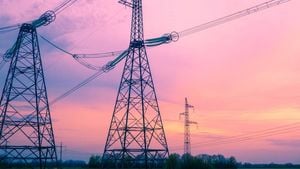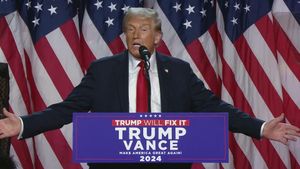On December 14, 2023, South Korea's President Yoon Suk-yeol was impeached by the National Assembly, following widespread outrage over his declaration of martial law on December 3. This unprecedented move, which was quickly lifted after just six hours, plunged the nation deepened political turmoil and public demonstrations against what many viewed as an attempt to return to authoritarian rule.
Hundreds of thousands of citizens flocked to Seoul’s streets, celebrating the parliamentary vote to impeach Yoon, whose presidency faced mounting pressure due to allegations of insurrection, abuse of power, and obstruction of parliamentary operations. Among those gathered outside the National Assembly was a teenager who expressed her disgust at Yoon's martial law announcement: “I never imagined it would happen in South Korea. I fully support the impeachment of Yoon Suk Yeol,” she declared defiantly.
The political crisis began when Yoon accused opposition forces—including the Democratic Party—of colluding with North Korea to undermine his government. On the night of his martial law declaration, he mobilized approximately 1,500 soldiers, intending to secure the National Assembly and prevent lawmakers from entering. Officers and troops were ordered to withdraw as the decree was overturned after only six hours without any significant violence.
Despite the president’s claims of needing to protect the nation, the public backlash was severe. Protests erupted almost immediately following the declaration, reflecting widespread anxiety over freedom restrictions. One protestor recalled, “I told myself, ‘I won’t be able to go out anymore. My freedom will be gone.’” Such sentiments captured the fear felt by many South Koreans, recollecting the stark reminders of their nation’s history under previous military regimes.
Following the impeachment vote, Yoon’s powers were suspended. He faced potential criminal charges as investigators sought to question him about his actions leading up to and during the martial law. Analysts suggested the case against him could lead to more severe legal repercussions, indicating he may even face arrest. Legal experts noted, "If Yoon continues to defy the requests for questioning, prosecutors or the joint investigation team may seek arrest warrants." His failure to appear for questioning by the Prosecutor's Office on December 11 only heightened concerns.
To add to the existing turmoil, Han Dong-hoon, the leader of Yoon's ruling People Power Party (PPP), announced his resignation, stating, “It has become impossible to carry out my duties as party chief due to the collapse of the party’s Supreme Council.” His resignation highlighted the significant fractures within the party, with new leadership now tasked to navigate the crisis. Kweon Seong-dong, the newly elected head of Parliament, is set to lead the PPP through this turbulent period.
Meanwhile, the newly occurring political dynamics played off against each other, with opposition leader Lee Jae-myung advocating for cooperation among political factions to restore stability. His party proposed creating councils to facilitate collaboration with the government to minimize disruption. “We will not seek to impeach the prime minister, Han Duck-soo, who is acting president,” Lee emphasized. This gesture was made to highlight the need for aiming toward swift governance and around-the-clock discussions during such politically volatile times.
The Constitutional Court began deliberations on Yoon’s impeachment, which could take from three to six months to reach its decision. Observers speculate Yoon's chances of retaining power appear slim amid intense scrutiny from the public and legal institutions alike. If dismissed, South Korea would be required to conduct national elections within 60 days.
For Yoon, the crisis seems insurmountable. He asserted he would “fight to the end,” claiming his martial law declaration was justified, yet the silence on his part only serves to amplify the growing calls for accountability from the parents of the demonstrators, who understand the grave stakes involved.
During these tumultuous political storms, as Washington Post’s Tokyo Bureau Chief, Michelle Ye Hee Lee noted, “The long several days of political tension have raised serious questions about governance and public trust.” The situation has drawn international attention, highlighting the key balance between security and civil liberties.
With the world watching, South Korea strives to navigate through the challenges posed by this unprecedented political crisis. How Yoon’s case concludes may very well set precedent for the future of governance and democratic integrity within the country.



